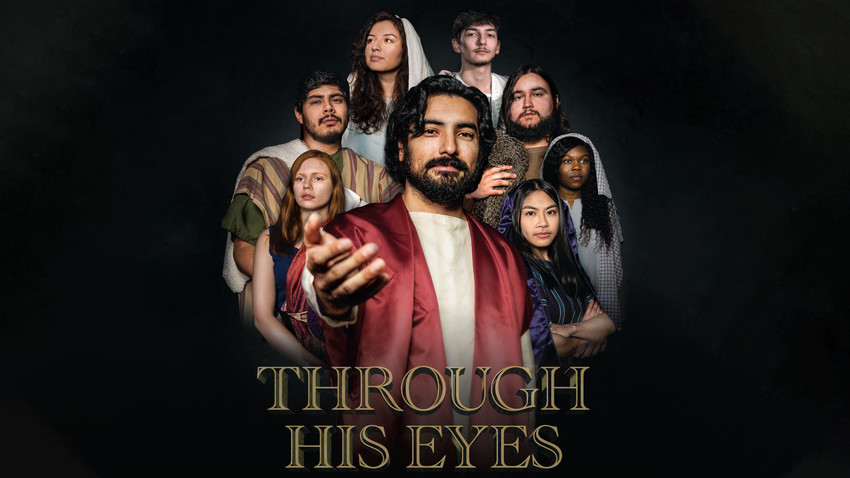
"Through His Eyes"
Godly sorrow produces repentance that leads to salvation and brings no regret, but the sorrow of the world produces death - 2 Corinthians 7:10
Springtime across the wider Christian world celebrates the story of past mistakes being covered over by Jesus’ blood. The sacrificial, atonement Jesus made on the cross stands as a testament to the truly amazing nature of grace. A grace that is so deep, so wide, so rich, so beautiful that it can cover every sin inside never to be seen again. There truly is something amazing about grace that is extended to sinners like you and I.
Yet, too often that aforementioned grace is negated by the one factor in this universe that can undo it. You. Me. Us. Each of us has our own secrets of sordid nature that lurk in our past. Yes, grace covers them. Grace wipes that slate clean. Jesus, himself, won’t remember those sins again (read Zechariah 3, Micah 7:19, Isaiah 43:25 as a quick refresher). But, we do. Somehow the most powerful force in the universe - the Grace of the Almighty Creator God - can be outdone by our memories. Some individuals are never able to move forward in their faith journey’s because they are trapped by their own remembrance of their sinful past.
The verse at the beginning of this blog (2 Corinthians 7:10) is a reminder that there are indeed two roads that diverge in vastly different directions. Both roads have sorrow, but one leads to life and the other to death. Theologians and Pastors, far smarter than I, have preached and written on the differences and meaning of these sorrows. I tend to view these sorrows through the lens of guilt and shame. Two approaches, two vastly different outcomes.
Therapist and researcher Brene Brown has spent a career understanding the effects of shame and guilt on human beings. In her own words, she describes the difference between shame and guilt as such:
I believe that guilt is adaptive and helpful—it’s holding something we’ve done or failed to do up against our values and feeling psychological discomfort.
I define shame as the intensely painful feeling or experience of believing that we are flawed and therefore unworthy of love and belonging—something we’ve experienced, done, or failed to do makes us unworthy of connection.
I don’t believe shame is helpful or productive. In fact, I think shame is much more likely to be the source of destructive, hurtful behavior than the solution or cure. I think the fear of disconnection can make us dangerous.[1]
Shame is an insidious thing. It creeps into every facet of our lives seeking to destroy us from the inside out. Shame is the voice that tells us there is no coming back even when God’s grace tells us otherwise. Guilt, on the other hand, is the reminder of the wrongs we’ve done that leads us to the grace that we are gifted because of what Jesus has done.
As Brown states, the deadliness of shame is that it makes us dangerous. The stories of Peter and Judas illustrate that well. Judas’ story of betrayal ends in a scene with no hope. A man possessed by shame and seeing no way out of the mess he had made. A desperate and dangerous, making decisions that could never be undone. Shame is a dangerous thing. It makes us dangerous because it eliminates the possibility of hope and connection with God. Peter’s story, on the other hand, shows what happens when guilt makes room for grace. Peter’s guilt, make no mistake, was crushing but it wasn’t permanent. After the resurrection, by the seashore, Jesus’ gentle words of restoration, “Follow me” (John 21:19) reminded Peter that no matter the sin there was still space for connection with the Saviour.
Pioneer Memorial Church and the Andrews University Center for Faith Engagement believe strongly that each person has an opportunity for grace rather than shame. And, this season, we wanted to remind you of that. So, we got a group of students together to write a brand new, original for 2024, musical (yes, originally written songs) that will tell the story of guilt and shame. This musical is called, Through His Eyes. It will be shown at Pioneer Memorial Church on March 30 (doors open 4:30 PM) and March 31 (doors open 5:30 PM). Everyone is invited to this free event which will showcase how grace can cover our worst mistakes and give us a better future.
[1] Brown, B. (2013, January 15). Shame vs. guilt. Brené Brown. https://brenebrown.com/articles/2013/01/15/shame-v-guilt/